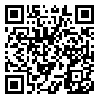Volume 12, Issue 3 (2021)
LRR 2021, 12(3): 347-376 |
Back to browse issues page
1- Ph.D. candidate of TEFL, Department of English Language & Literature, Faculty of Letters & Human Sciences, Shahid Beheshti University, Tehran, Iran
2- Associate Professor of TEFL, Department of English Language & Literature, Faculty of Letters & Human Sciences, Shahid Beheshti University, Tehran, Iran , sasanbaleghizadeh@yahoo.com
2- Associate Professor of TEFL, Department of English Language & Literature, Faculty of Letters & Human Sciences, Shahid Beheshti University, Tehran, Iran , sasanbaleghizadeh@yahoo.com
Abstract: (1883 Views)
The present study was conducted to identify novice and experienced Iranian EFL teachers’ beliefs towards the most effective written corrective feedback types and the most serious errors they might address while correcting students’ paragraphs and see whether there exist any tensions between what they believed and what they practiced through the methodology of pre-observation interview, observation, and post-observation interview. The results revealed that for novice teachers, there were fewer tensions between their stated beliefs and observed practices, yet this tension was more obvious while interviewing experienced teachers. Some implications for language teacher education will also be discussed.
| Rights and permissions | |
 |
This work is licensed under a Creative Commons Attribution-NonCommercial 4.0 International License. |




